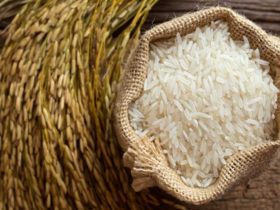India’s luggage industry is likely to witness a revenue growth of about 15% on a yearly basis this fiscal on the back of higher penetration of hard luggage made by the organised sector and sustained growth in tourism and corporate travel, according to CRISIL Ratings. The increase in revenue projection is despite a 40% growth last fiscal, the ratings agency added.
However, higher marketing and promotional expenditure by organised players is expected to cap higher margins despite a steep fall of about 20% in prices of key raw materials – polypropylene, polycarbonate, and polyamide. The prices of these key raw materials are mainly crude price driven, and comprise 40-45% of the cost for luggage makers.
The rating agency noted that the organised sector’s operating efficiencies and capacity utilisation have improved due to consumer demand for hard luggage. As a result, their operating margin is expected to increase by 150–200 basis points (bps) year-on-year to 16% this fiscal.
CRISIL Ratings said that consumers are shifting towards hard luggage because of better looks and durability. Luggages are also getting lighter in weight, which is a key consideration in travel. Consequently, organised luggage makers have been proactively turning their revenue mix towards hard luggage across retail and online.
The report is based on CRISIL Ratings analysis of luggage makers that account for 90% of the organised sector’s revenue. Organised luggage manufacturers account for about 40% share of the nearly Rs 15,000 crore industry.
“In the past five fiscals, the market share of hard luggage has shot up to 55% from 33%. Operating margins are relatively better on them since these are manufactured locally. On the other hand, the fragmented unorganised sector largely imports soft luggage from China. They have been impacted by supply-chain disruptions and implementation of the Goods and Services Tax, leading to loss of market share,” said Jaya Mirpuri, Director, CRISIL Ratings.
The rating agency said that improved profitability and lean balance sheets will support credit risk profiles, despite planned capacity expansion. Further, with utilisation in full swing, organised manufacturers are looking at expanding capacity as well as their retail networks, the rating agency added.
“Apart from doubling capacity, organised manufacturers are set to ramp up retail presence by 35-40%, which would involve a capital expenditure of about Rs 700 crore this fiscal. While this will increase their debt levels, overall capital structure and coverage metrics will not be materially impacted because of improved cash accruals. Gearing and interest coverage of our sample set will remain comfortable at 0.6 time and 11.5 times, respectively,’’ said Says Rushabh Borkar, Associate Director, CRISIL Ratings.
However, the rating agency cautioned that the industry’s fortunes hinge on travel trends and any decline thereof, or a sharp volatility in the prices of crude oil-related raw materials will bear watching.





